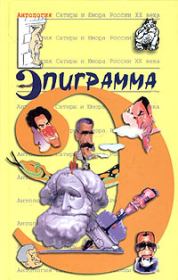Автор неизвестен - Russia under the first Romanovs from Cambridge history of Russia, volume 1
 | Название: | Russia under the first Romanovs from Cambridge history of Russia, volume 1 |
Автор: | Автор неизвестен | |
Жанр: | История: прочее | |
Изадано в серии: | неизвестно | |
Издательство: | неизвестно | |
Год издания: | - | |
ISBN: | неизвестно | |
Отзывы: | Комментировать | |
Рейтинг: | ||
Поделись книгой с друзьями! Помощь сайту: донат на оплату сервера | ||
Краткое содержание книги "Russia under the first Romanovs from Cambridge history of Russia, volume 1"
Аннотация к этой книге отсутствует.
Читаем онлайн "Russia under the first Romanovs from Cambridge history of Russia, volume 1". [Страница - 5]
Artillery [1655/ 6]; Foreign Mercenary [1656/7-57/8]; Grand Treasury [1659/60-63/4]; Grand Revenue [1662/3]; Privy Affairs [1663/ 4-71/ 2]; Grand Palace [1671/ 2-76/7]
Equerry [1653/4-63/4]; Gun Barrel
Khitrovo, A. S. 1671 1676 Bogdanov, G. K. 1671 Polianskii, D. L. 1672 Naryshkin, F. P. 1672 Mikhailov, F. 1672 Matiushkin, A. I. 1672 Lopukhin, A. N. 1672 Panin, V. N. 1673
[1653/4]
Tsarina's Workshop [1669/ 70-76/ 7] NONE
Figure 19.3 (cont.)
tsar no longer ruled exclusively with the duma men, but instead via special conciliar and executive bodies. Kotoshikhin described two of them. The first was a kind of privy council chosen from the 'closest boyars and okol'nichie' (boiare i okol'nichie blizhnie). Here Alexis discussed affairs 'in private', outside the large council.32 Second, Kotoshikhin detailed the workings of the Privy Chancellery (Prikaz tainykh del), where the 'boyars and duma men do not enter . . . and have no jurisdiction'.33 And that chancellery', he wrote, 'was established in the present reign, so that the tsar's will and all his affairs would be carried out as he desires, without the boyars and duma men having any knowledge ofthese matters.'34 Kotoshikhin's understanding of Alexis's relation to hereditary duma men is clear: while he honoured them, he did his real business with the 'closest people'. He was, it is true, hardly the first Russian ruler to surround himself with an inner circle of powerful advisers.35 He was, however, the first to do so since the political settlement that ended the Time of Troubles. For one of the few times in Muscovite history, the tsar had succeeded in liberating himself from the elite of which he was a part. Muscovy became an autocracy - or at least less of an oligarchy - as it had been under Ivan III and Ivan IV.
But only for a moment, for Alexis's new order proved untenable. He was strong enough and clever enough to use his novel tool of patronage sparingly. His successors were neither. As a result of their political insecurity, Fedor, Sophia and young Peter -together with those who urged them on - were forced to 'go to the well' of duma patronage often in order to win support among the boiarstvo. They made hordes of appointments from the ever-expanding court in a desperate effort to curry favour. The result can be seen in Figure 19.4.
The duma ranks ballooned, and thereby lost their meaning even as royal patronage. Alexis's weak successors had, in essence, devalued the currency bequeathed to them by their father. What Alexis had carefully designed as a mechanism to bring new talent into the political class resulted, under his children, in the destruction of that class. Confusion reigned among the elite; mestnichestvo - a nuisance from the point of view of the crown and meaningless from the point of view of the old elite - died an unmourned death.36 As early
32 Kotosixin, ORossii,fo. 36.
33 Ibid., fo. i23v.
34 Ibid., fo.i24.
35 On the existence ofsuch 'inner circles' in previous eras, see A. I. Filiushkin, Istoriiaodnoi mistifikatsii: Ivan Groznyi i 'IzbrannaiaRada' (Moscow: VGU, 1998), and Sergei Bogatyrev, The Sovereign and His Counsellors. Ritualised Consultations in Muscovite Political Culture, 135os-157os (Helsinki: Finnish Academy of Science and Letters 2000).
36 Marshall T. Poe, 'The Imaginary World of Semen Koltovskii: Genealogical Anxiety and Falsification in Seventeenth-Century Russia', Cahiers du monde russe 39 (1998): 375-88.
40
J3 -
64 5
87
107
143
.„ 1
, 139
65 59 59
50 41
38
38
30
31
34 3U
3!
3S 39 3! 3!
_
3 3
3!
5 ™
41
3
7 !
UO[V JO ,|.М|ШП\
1712 1709 1706 1703 1700 1697 1694 1691 1688 1685 1682 1679 1676 1673 1670 1667 1664 1661 1658 1655 1652 1649 1646 1643 1640 1637 1634 1631 1628 1625 1622 1619 1616 1613
as 1681, even the wise old men of the traditional elite - led in this instance by Vasilii Golitsyn - were actively searching for a new order to replace what had obviously been broken.[21] They failed, and it would be up to Peter, who personally witnessed the corruption of his father's legacy, to forge a new and profoundly monarchical political system.
The chancelleries
While the boyar and court elite led Muscovy, chancellery personnel - the prikaznye liudi - administered it. They were, as we have seen, distinctly second- class citizens at court, 'employees at will' serving at the pleasure of the tsar - or not. But the state was growing rapidly in the seventeenth century, and with it the administrative burden of far-flung, complex operations. Since the prikaz personnel needed organisational skill and a deep knowledge of affairs, the elite generally kept them employed and reasonably satisfied - the state could not run without them. If a chancellery man performed well and had the proper connections, he could advance, first, through the administrative ranks (pod'iachii to d'iak) and, then, to the duma (though very rarely and almost always to dumnyi d'iak, no further). This cursus honorum was steep: only a small proportion of all clerks (pod'iachie) were made d'iaki (secretaries) and few d'iaki were made dumnye d'iaki.38 As we have noted, late in the century some of the prikaz people occupied important positions in the government, and one served as de facto prime minister. This remarkable shift upward was a reflection of the growing importance of administrative work for the state.
The world of the prikaz people was different from that of any other Muscovite in a number of ways. First, the chancellery employees were literate, a fact that differentiated them from even most members of the elite (Koto- shikhin called the latter 'unlettered and uneducated').[22] As the century drew to a close, a few of them would even develop a taste for something we might sensibly call 'literature' (almost all of it imported), a first for Muscovy.40 Second, the prikaz people worked in offices run in quasi-rational fashion. The chancelleries had many ofthe
--">Книги схожие с «Russia under the first Romanovs from Cambridge history of Russia, volume 1» по жанру, серии, автору или названию:
 |
| Юрий Федорович Каторин, Виталий Валерьевич Тарнавский, Николай Лукьянович Волконский - Уникальная и парадоксальная военная техника, т. 1 Жанр: История: прочее Год издания: 2003 |
Другие книги автора « »:
 |
| Автор неизвестен - Земное тепло (Мансийские сказы) Жанр: Мифы. Легенды. Эпос Год издания: 1979 |








